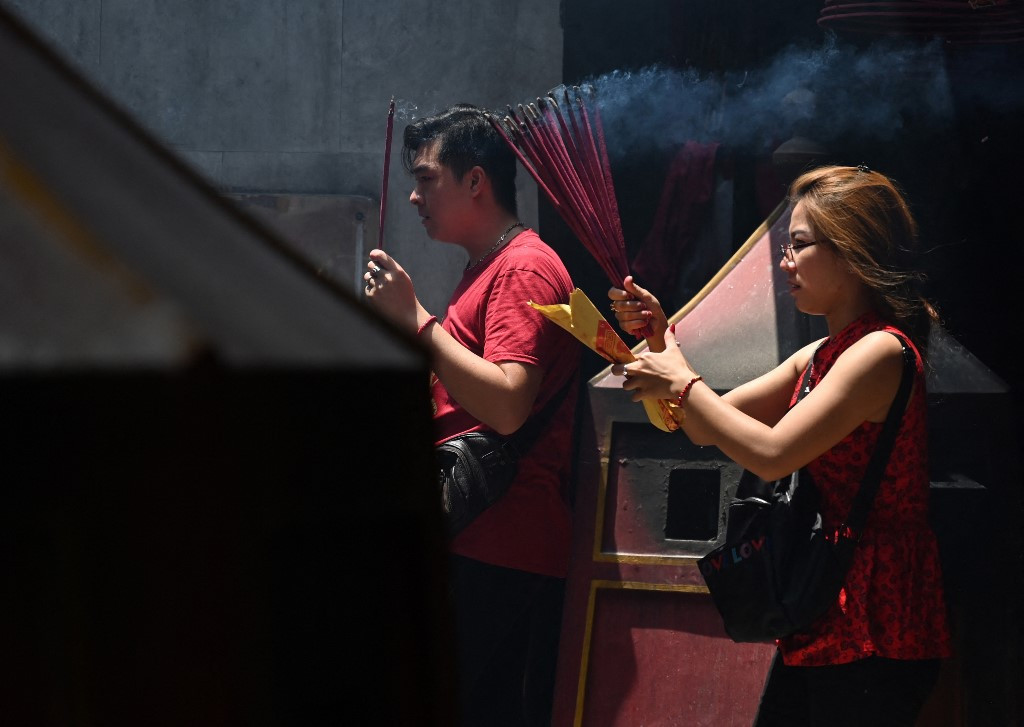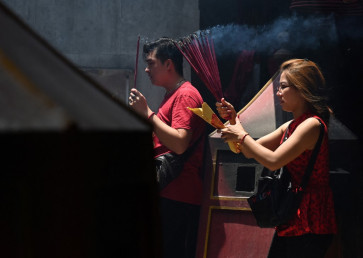Popular Reads
Top Results
Can't find what you're looking for?
View all search resultsPopular Reads
Top Results
Can't find what you're looking for?
View all search resultsThe changing face of Chinese-Indonesian identity
Many young Indonesians of Chinese descent find their multicultural identities a constant balancing act.
Change text size
Gift Premium Articles
to Anyone
B
eing Chinese-Indonesian today can be confusing. I look noticeably Chinese, I celebrate Chinese New Year with my family and I used to get angpao, or red envelopes filled with money, as a kid. But I also grew up in a household where my parents conversed more in Javanese than in any other language. I don’t speak any Chinese dialect and was given a very Javanese-sounding name. As a result, I’m often unsure of where I fit in culturally.
This is a dilemma that a number of young Chinese-Indonesians are familiar with, as many shed much of their Chinese identity and become “assimilated”. According to the 2010 census, only 24 percent of Chinese-Indonesians still use Chinese as their home language.
Some Chinese-Indonesians see this as a good thing. Laurensia Felise, a 22-year-old newspaper reporter from South Tangerang claims that “being less Chinese” allows her to blend in with other Indonesians and relate with others more easily. This is a sentiment echoed by Mychel Pancho, a 30-year-old writer from Cengkareng, West Jakarta. “You get to blend in with everyone more,” he said, “and there’s less chance of you being racially discriminated against.”
Some even see this change as inevitable and necessary. Alva Christo, a 25-year-old Yogyakarta-born photographer who is more fluent in Javanese than Mandarin believes that people should follow the customs of the area they live in. “A lot of rifts between Chinese-Indonesians and locals were caused by language barriers,” he said. “I mean, it’s important to learn the Chinese language, but I won’t be able to use it when I haggle at the local markets.”
There seems to be a consensus among Chinese-Indonesians that some Chinese traditions are outdated and impractical, even among those who come from a fairly traditional Chinese background.
Jeffry Kurniawan, a 22-year-old college student from Surabaya, East Java, is better known as Atat (from his Chinese name, Tan Liong Tat). He comes from a traditional Hokkien family and still speaks the language at home. His family believes that during Chinese New Year, one shouldn’t get a haircut – it would shed good luck – and that the house must always be cleaned to bring positive energy into one’s living space. His family also looks for “lucky dates” on the Chinese calendar before setting up a new business.
Despite his background, Atat sees little room for Chinese traditions in the modern world. “The traditions are becoming a burden and are slowly disappearing,” he says. “They’re getting irrelevant, and I can’t see their place in today’s world.”



















